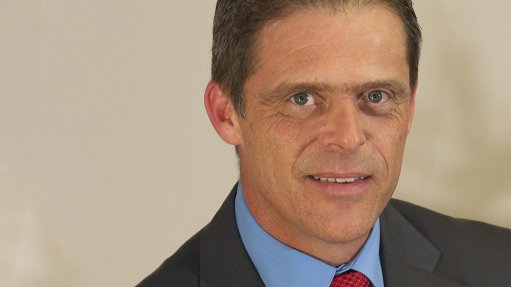
DR COBUS OOSTHUIZEN Leaders must be honest, have foresight and should lead by example
This year, Belgium-headquartered worldwide partnership of companies and business schools and learning organisations the Globally Responsible Leadership Initiative reaffirmed the need for business schools to do more to influence students to make ethical decisions and to behave in a way that reflects globally responsible leadership post graduation.
In acknowledgement of this, Johannesburg-based tertiary institution Milpark Business School’s Master of Business Administration (MBA) programme has emphasised and accentuated the responsible leadership schema in its thinking, curricula and teaching methodologies, says school dean Dr Cobus Oosthuizen.
He tells Engineering News that, as far back as 2005, a survey of deans at a European Foundation for Management Development conference concluded unanimously that it was necessary for business schools to instil the principle of responsible leadership. “We are, therefore, proud to say that Milpark has consistently subscribed to this ideal throughout the years,” says Oosthuizen.
He adds that leaders must lead by example, be honest and have foresight. They must also motivate and inspire the people they lead and build moral foundations in organisations.
“We embrace the need for responsible leadership development in our MBA programme to ensure that graduates are equipped to meet the leadership challenges of a dynamic global business environment and that they are capable of managing people working in environments marked by constant change,” says Oosthuizen.
He tells Engineering News that Milpark Business School is committed to creating a learning environment that enables holistic intervention, addressing all areas of development, including institutional, curriculum, faculty, student, administrative, staff and resource development.
“To enhance the development of responsible leadership required to conduct business in the twenty-first century among our graduates, we have to visibly demonstrate to our stakeholders that we are able to do what we teach,” he explains.
Oosthuizen adds that, as a signatory to the Principles of Responsible Management Education, a United Nations Global Compact initiative, Milpark has affirmed its commitment to developing students’ capabilities to be future generators of sustainable value for business and society at large, and to work for an inclusive and sustainable global economy.
“The principles also require that we incorporate the values of global social responsibility into our academic activities and curricula, as portrayed in international initiatives such as the United Nations Global Compact.”
The United Nations Global Compact is a strategic policy initiative for businesses committed to aligning their operations and strategies with universally accepted principles in the areas of human rights, labour, the environment and anticorruption policies.
By doing so, business, as a primary driver of globalisation, can help ensure that markets, commerce, technology and finance advance in ways that benefit economies and societies around the globe, says Oosthuizen.
The net effect, he concludes, is that Milpark’s MBA graduates are exemplary performers who set an example and command respect. They also become responsible leaders who project concern for humanity and the earth in the context of accountable business practices.